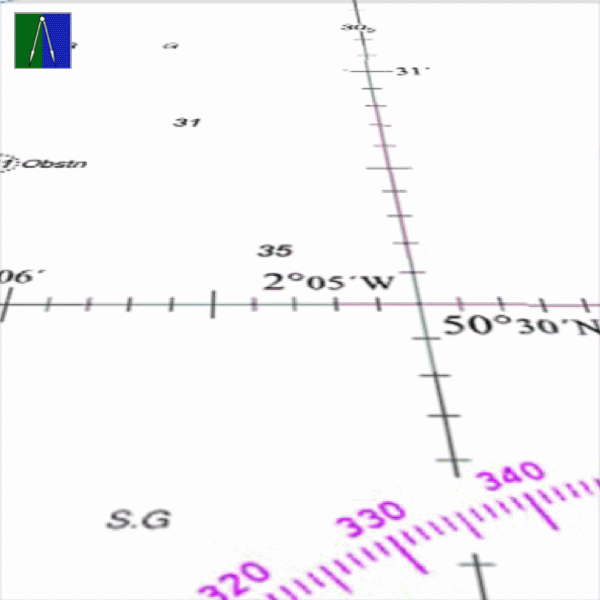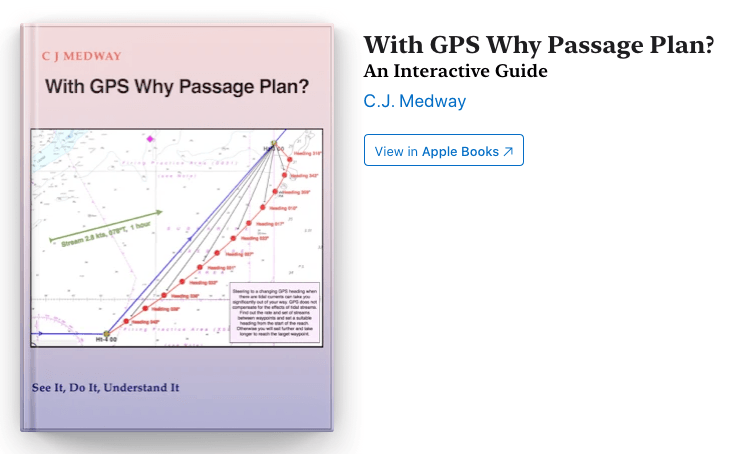Because GPS does not compensate for tidal currents, as this animation demonstrates.
AND: Because it is a legal requirement.
VOYAGE PLANNING
Part of Chapter V of the International Convention for the Safety of Life at Sea, otherwise known as SOLAS V. Most of the SOLAS convention only applies to large commercial ships, but parts of Chapter V apply to small, privately owned pleasure craft. The following requirements apply to ALL craft, irrespective of size. If you are involved in a boating accident and it is subsequently shown that you have not applied the basic principles outlined in this document, you could be prosecuted.
VOYAGE PLANNING
Regulation V/34 ‘Safe Navigation and avoidance of dangerous situations’, is a new regulation. It concerns prior-planning for your boating trip, more commonly known as voyage or passage planning. Voyage planning is basically common sense. As a pleasure boat user, you should particularly take into account the following points when planning a boating trip:
• Weather: before you go boating, check the weather forecast and get regular updates if you are planning to be out for any length of time.
• Tides: check the tidal predictions for your trip and ensure that they fit with what you are planning to do
• Limitations of the vessel: consider whether your boat is up to the proposed trip and that you have sufficient safety equipment and stores with you.
• Crew: take into account the experience and physical ability of your crew. Crews suffering from cold, tiredness and seasickness won’t be able to do their job properly and could even result in an overburdened skipper.
• Navigational dangers: make sure you are familiar with any navigational dangers you may encounter during your boating trip. This generally means checking an up to date chart and a current pilot book or almanac.
• Contingency plan: always have a contingency plan should anything go wrong. Before you go, consider bolt holes and places where you can take refuge should conditions deteriorate or if you suffer an incident or injury. Bear in mind that your GPS set is vulnerable and could fail at the most inconvenient time. It is sensible and good practice to make sure you are not over-reliant on your GPS set and that you can navigate yourself to safety without it should it fail you.
• Information ashore: make sure that someone ashore knows your plans and knows what to do should they become concerned for your well being. The Coastguard Voluntary Safety Identification Scheme (commonly known as CG66) is also free and easy to join. The scheme aims to help the Coastguard to help you quickly should you get into trouble while boating. It could save your life.
Once a Route List has been worked out it need not dictate your time of departure but should certainly inform it. Why leave when the currents will be least propitious at key points in your journey? Why not take full advantage of the streams? In any case does it not look more 'professional' and 'seamanlike' to announce your TOD, in order to 'catch the tide', rather than make lame excuses later, when you discover, "the tide is against us"!
If it is disadvantageously against you that is no accident, that is bad seamanship.
: My thanks to 'Tomahawk' at YBW forum for most of the legal and official information.

